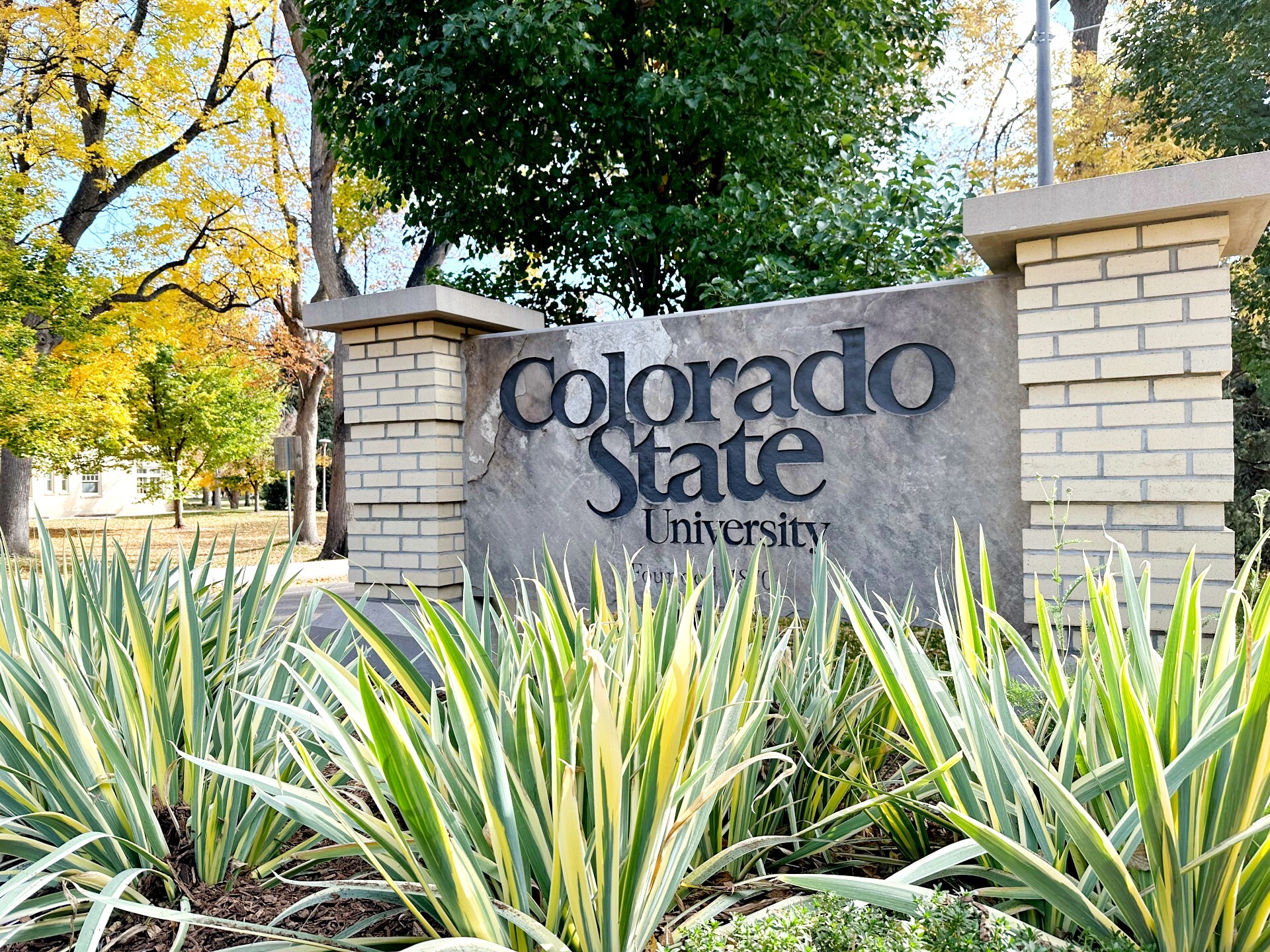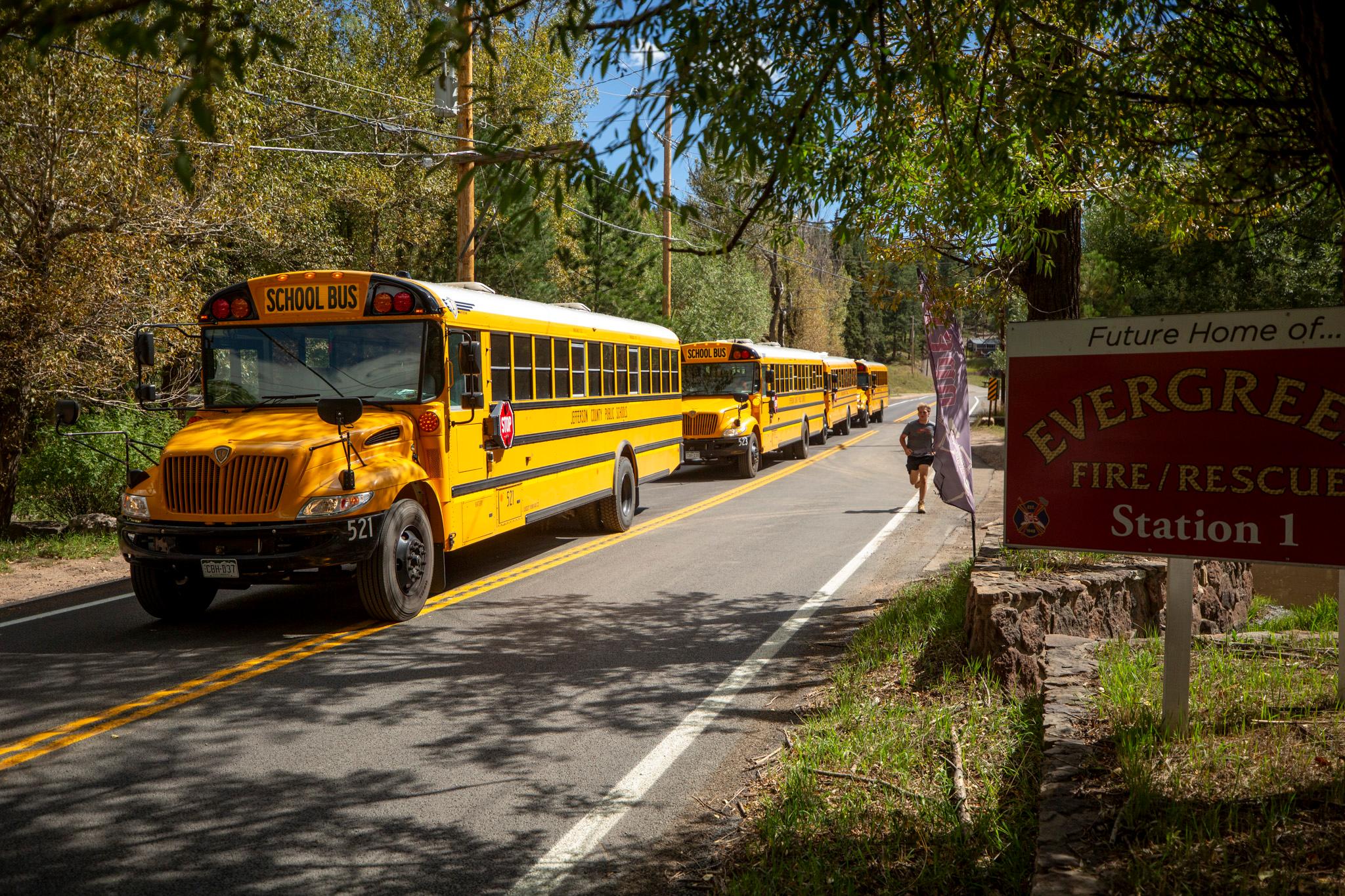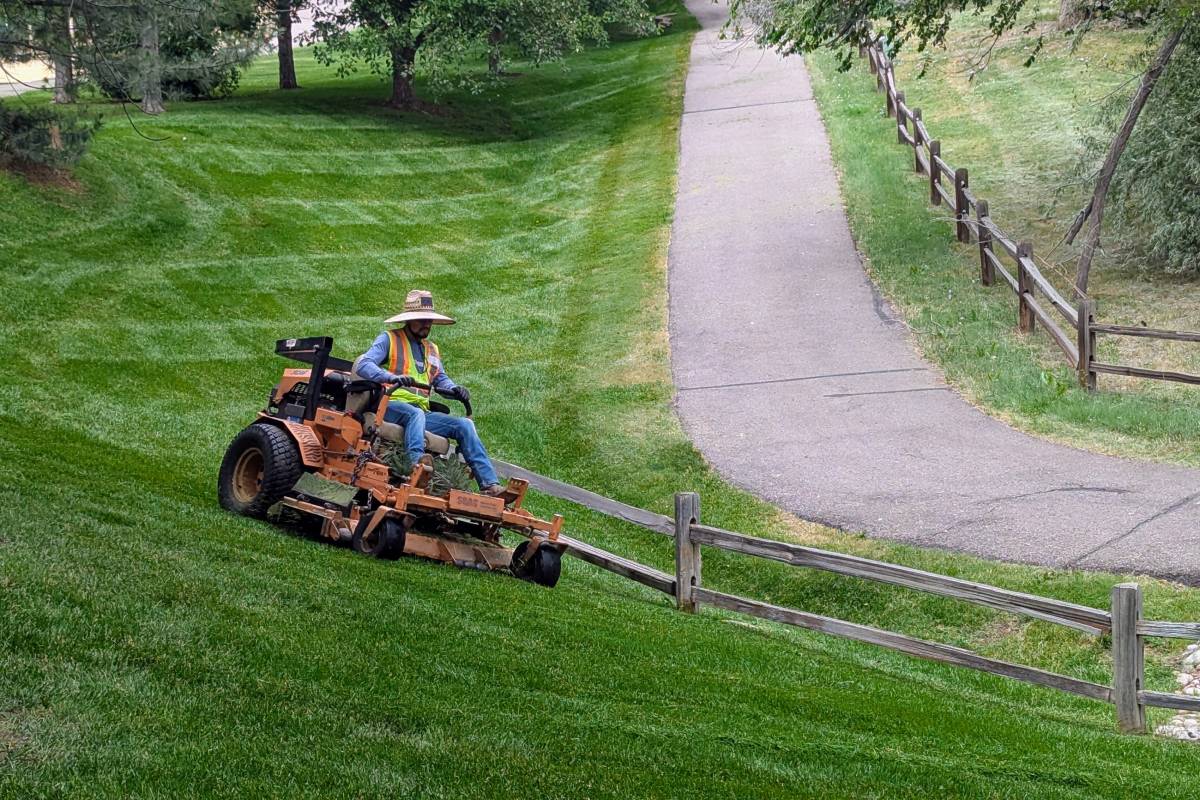
At the start of the summer, Johnny Jimenez gathered the crews he manages at Designscapes Colorado, a commercial landscaping company headquartered in Centennial, a suburb south of Denver.
A new state air quality rule went into effect on June 1, banning government entities from using small gas-powered lawn equipment during the summer ozone season. Since the company holds contracts to maintain public parks, Jimenez told his workers all gas-powered, hand-held lawn equipment had to come off their trailers in favor of newly purchased electric leaf blowers and string trimmers.
“To put a battery-operated machine in their hand, it was kind of like a learning curve, and it still is a learning curve,” Jimenez recalled. “It's just trial and error. We have no choice.”
The switch comes as Colorado struggles to cut ground-level ozone pollution along the Front Range. The dangerous lung irritant — better known as smog — routinely climbs above federal health standards on summer afternoons. After decades of failing to fix the problem, the U.S. Environmental Protection Agency reclassified a nine-county region around metro Denver as a “severe” ozone violator in 2022.
Gas-powered lawn and garden equipment plays an outsized role in the perennial air quality problem. The lawn equipment rule — approved in 2023 — marks Colorado's most aggressive effort to address the pollution source so far, but the state is taking a “flexible” enforcement approach, prioritizing education and outreach over fines and other penalties.
The strategy has put Designscapes at the forefront of the transition to electric lawn care. Despite the lax enforcement approach, the company embraced the shift to win government contracts and satisfy residential customers bothered by the guttural roar of gas-powered equipment. It’s now figuring out whether battery-powered lawn care can work at a commercial scale.
New rules to mow down pollution
Gas-powered lawn equipment might be small, but the tools are a major pollution source because their engines effectively work as smog machines.
Many weed wackers and leaf blowers rely on two-stroke motors burning a combination of oil and gasoline. The resulting exhaust contains large amounts of nitrogen oxides and volatile organic compounds, the two key ingredients necessary to form ground-level ozone. Most mowers rely on cleaner four-stroke motors but lack emissions control systems like catalytic converters found in most cars.
One byproduct is some shocking air quality statistics. The California Air Resources Board estimates running a commercial leaf blower for a single hour emits as much smog-forming pollution as driving a new car 1,100 miles from Los Angeles to Denver. Around metro Denver, the lawn tools emit more volatile organic compounds than all vehicles on the road, according to the Regional Air Quality Council, the leading air quality planning agency for the Front Range.
Air quality regulators adopted the new lawn care rules — known as Regulation 29 — in 2023. The Colorado Air Quality Control Commission, a nine-member panel appointed by the governor, opted against more aggressive proposals supported by environmental advocates and local governments to ban the sale of gas-powered lawn equipment or directly regulate commercial companies.
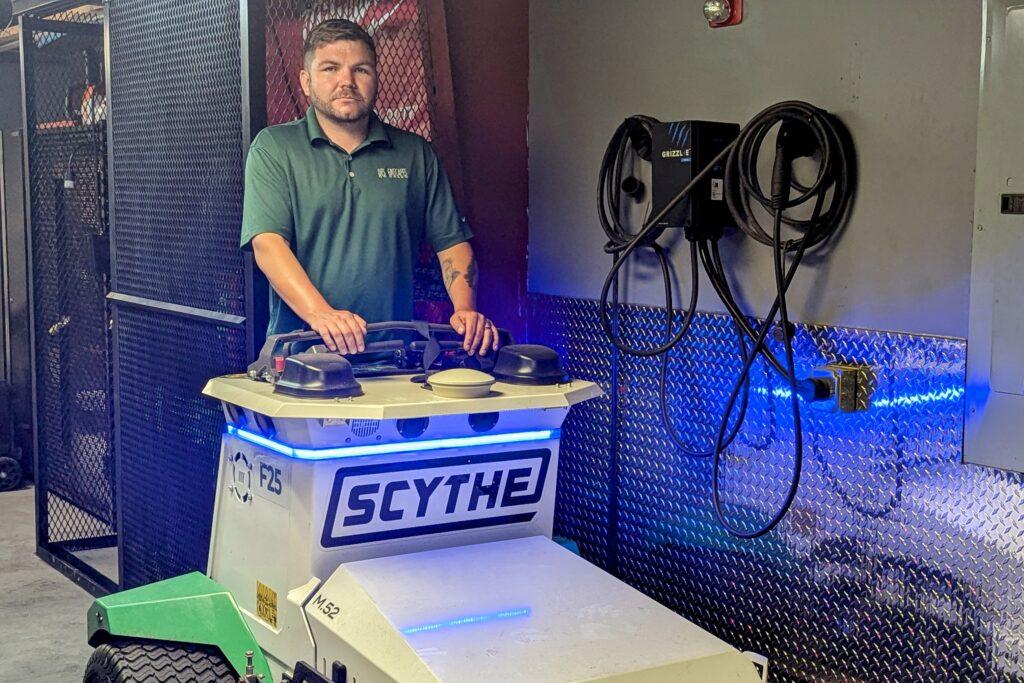
It instead signed off on a plan to focus on public entities like school districts and city park departments. Those entities are now restricted from using smaller gas-powered equipment such as leaf blowers, tillers and edgers from June 1 to August 31.
But Michael Ogletree, Colorado’s senior director of air quality programs, said the state isn’t rushing to fine or punish anyone for failing to follow the rules.
“This is a new space we haven’t regulated in the past,” Ogletree said. “Right now, the way we’re working towards compliance is through education and outreach, and providing some flexibility if there are reasons why any particular entity can’t comply.”
Denver is one city taking advantage of extra breathing room. In a written statement, Stephanie Figueroa, a spokesperson for Denver Parks and Recreation, said her team “hasn’t purchased much equipment” because the city paused spending amid an ongoing major budget crunch.
Until those restrictions are lifted, Figueroa said her department will report usage of gas-powered tools to state authorities while it outlines a plan to transition to electric equipment.
A shift from gas cans to battery packs
Designscapes offers a preview of how governments across Colorado might adjust their operations to comply with the rules.
On a recent morning, a crew employed spanned out across Westlands Park in Greenwood Village, a 28-acre area packed with playgrounds and pavilions. The company still uses a gas-powered riding mower to cut large spaces, but switches to all-electric trimmers for smaller sections of weeds and grasses. Any debris on the sidewalks is then cleared with leaf blowers powered by a backpack stocked with batteries.
Brian Levins, the manager of the company’s landscaping operations, said Designscapes bought around $50,000 in electric equipment in anticipation of the new air quality rules. A $12,000 matching grant from the Regional Air Quality Council helped subsidize the purchase, and the equipment was further discounted by a 30 percent tax credit Colorado offers to offset the cost of electric lawn equipment.
“Reducing the noise, reducing the stress through all the vibration, reducing being exposed to those fumes all day — I thought that was a really positive thing to give to our team members,” Levins said.
The quieter equipment is appreciated by Jose Lara, the worker leading the crew maintaining the park. At the same time, he said he hopes battery technology continues to improve so he can work for longer stretches without trekking back to a trailer for a fully-charged pack.
More regulations could be on their way
After approving the new rules in 2023, Colorado air quality regulators plan to consider further regulations in November.
Those restrictions could include restricting commercial landscapers from using gas-powered equipment, not just public entities and their contractors. The Colorado Air Quality Control Commission could also reconsider whether to phase out the sale of handheld gas-powered lawn tools at Front Range retailers.
It’s unclear if the Gov. Jared Polis’ administration would support those policies. Ogletree, Colorado’s top air quality official, said his staff is in the early stages of researching the feasibility of different regulations given current market conditions and recent improvements in electric lawn care technology. The state hasn’t developed any formal proposal to offer commissioners later this year.
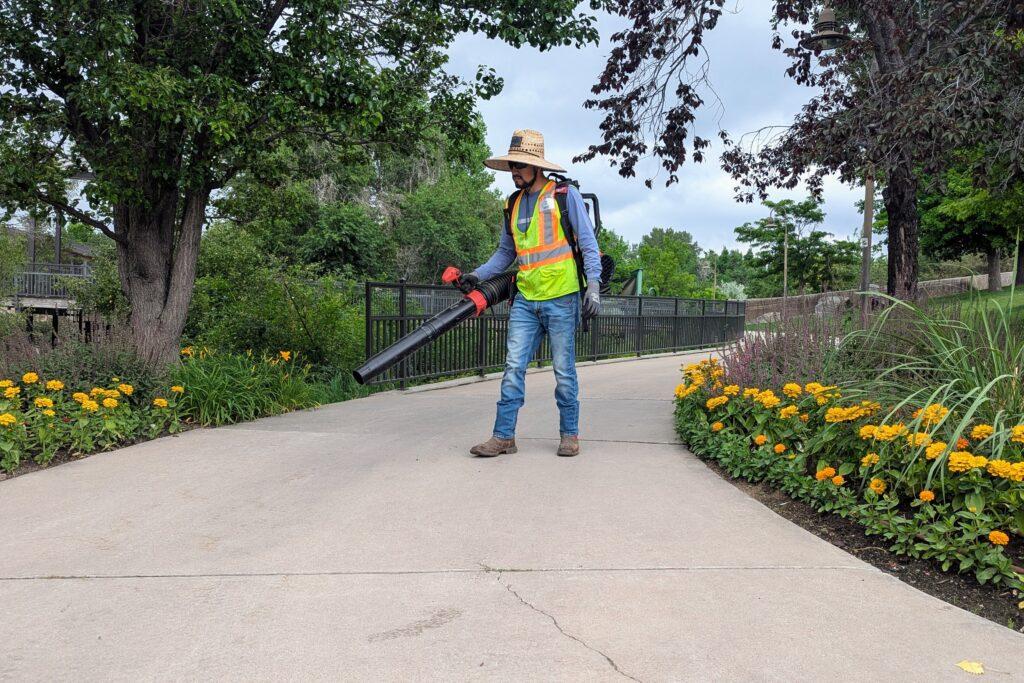
The landscaping industry is already gearing up to push back on anything it sees as too restrictive. Levins said Designscapes is glad it’s shifting to all-electric equipment, but he hopes regulators recognize other operators might lack the facilities and capital to manage a rapid transition.
“ There's just a lot of other costs that you don't necessarily think through when you first hear about these things. So for a smaller operator, I think it can be very, very burdensome,” Levins said.
Air quality advocates want to better understand compliance with current lawn equipment rules before pushing for further restrictions. Danny Katz, the executive director of the Colorado Public Interest Research Group, said it appears usage of gas-powered lawn tools remains common in parks and other public spaces. “Let’s get that right and then see what the next step is,” Katz said.
Other advocates want to see the state take decisive action. Elise Jones, the executive director of the Southwest Energy Efficiency Project, an environmental advocacy group, recently left her appointment on the Colorado Air Quality Control Commission, where she pushed for more aggressive regulations to limit pollution from lawn equipment.
Jones said the state can’t hesitate to act if it wants to meet a mid-2027 deadline to comply with federal ozone standards, and should adopt plans to phase out gas-powered equipment from commercial lawncare companies and Front Range retailers.
“We'd all breathe easier if Colorado would step up and be a leader in transitioning away from noisy, polluting gasoline-powered lawn mowers, weed whackers and leaf blowers to clean, quiet electric-powered alternatives,” Jones said.

